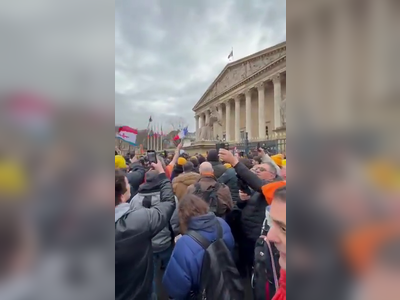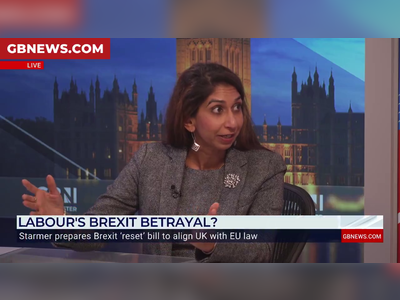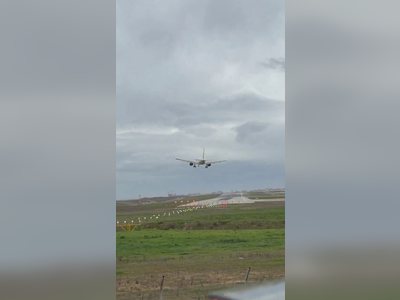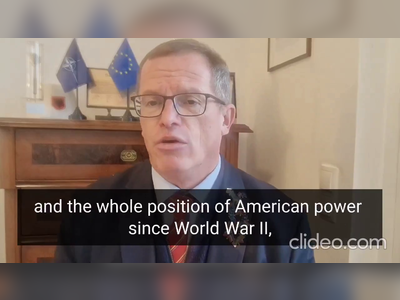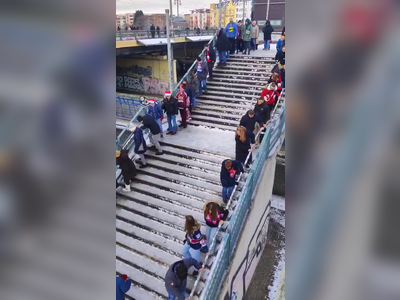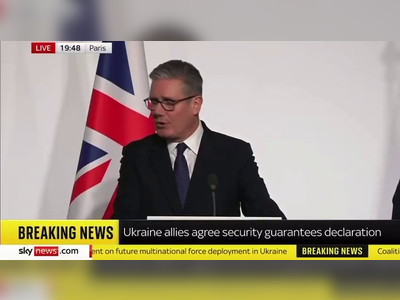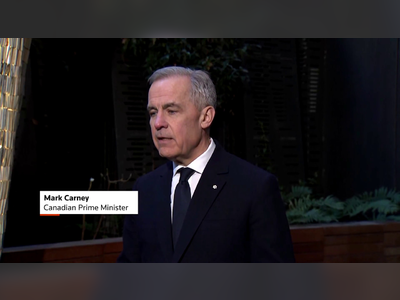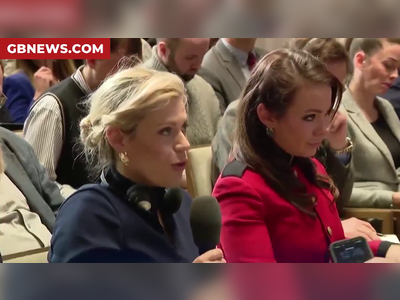Iran's Leadership in Disarray: Khamenei Allegedly in Coma with Son Discreetly Selected as Successor
Amidst Speculation Regarding the Health of Iran’s Supreme Leader, Succession Plans Stir Controversy
There is growing speculation about the health of Iran’s Supreme Leader, Ayatollah Ali Khamenei, amid reports that he has entered a coma. Israeli media outlet Ynet News, referencing Iran International, claims that the Assembly of Experts has secretly gathered to designate Khamenei’s son, Mojtaba Khamenei, as his successor.
Although Iranian authorities have not confirmed or denied these claims, the potential consequences of such a decision could be significant, affecting both domestic and international spheres.
A Leadership Transition in Privacy
The alleged decision to appoint Mojtaba Khamenei as the next Supreme Leader reportedly occurred during a secretive meeting of the Assembly of Experts on September 26. According to Iran International, the decision was kept confidential to avoid public unrest, with members supposedly warned of severe repercussions if meeting details were disclosed.
“The assembly decided to maintain utmost secrecy due to fears of widespread public protests,” the report states, suggesting deep concerns within Iran’s leadership over possible backlash from a population already struggling with economic difficulties and growing dissatisfaction with the regime.
Mojtaba Khamenei: A Controversial Heir
The selection of Mojtaba Khamenei as successor is both significant and controversial. As Ayatollah Khamenei’s second son, Mojtaba has long been seen as a powerful figure behind the scenes, reportedly managing crucial financial and political networks within the regime. However, his rise to Supreme Leader would break with tradition, as Iran’s governance is not intended to operate as a hereditary monarchy.
Critics argue that this move could undermine the ideological foundations of the Islamic Republic, which has historically claimed to be a theocratic system driven by clerical merit rather than dynastic succession. Mojtaba's lack of broad public support and clerical credentials might heighten perceptions of nepotism, further alienating an already disillusioned population.
Potential Public Response
The secrecy surrounding the decision highlights the regime’s apprehensions about public backlash. Iran has experienced widespread protests in recent years, driven by economic crises, corruption allegations, and calls for greater political freedoms. The reported succession plan, if accurate, could spark further unrest, as many Iranians view consolidating power within one family as betraying the foundational principles of the Islamic Republic.
“The regime is already on thin ice,” says political analyst Jay Douglas. “Iranian citizens have shown increasing frustration with the government’s handling of domestic issues, and a perceived dynastic takeover might push this discontent to the limit.”
Impacts on Regional and Global Dynamics
A leadership change in Iran could have significant effects regionally and globally. Ayatollah Khamenei has been instrumental in shaping Iran’s foreign policy, especially its contentious relations with the U.S., Israel, and Gulf Arab states. His passing, coupled with questions about his successor’s legitimacy, might lead to a power vacuum or shift Iran’s strategic priorities.
Mojtaba Khamenei's rise could escalate tensions. Being closely linked to Iran’s hardline factions and the Revolutionary Guard, his leadership might suggest a continuation—or even intensification—of confrontational foreign policies, likely impacting ongoing nuclear talks and regional stability.
“Any alteration in Iran’s leadership is likely to send ripples through the Middle East,” Douglas notes. “But a succession seen as illegitimate could destabilize Iran internally, making its policies more unpredictable.”
The Path Ahead: Reality or Speculation?
While reports of Ayatollah Khamenei’s coma and the alleged succession plan are unverified, they highlight the fragility of Iran’s current political landscape. The regime’s silence on these rumors only fuels speculation and uncertainty both domestically and internationally.
If the claims are true, the regime’s strategy of secrecy might buy time but could deepen the divide between the government and its citizens. If unfounded, these claims still underscore the growing tension and fragility within Iran’s ruling elite.
A Nation at a Turning Point
Iran finds itself at a crucial crossroads. Whether or not Ayatollah Khamenei is incapacitated, the challenges facing the Islamic Republic—from internal dissent to external pressures—require leadership capable of addressing them with legitimacy and foresight. The reported move to make Mojtaba Khamenei Supreme Leader could be seen as an attempt to consolidate power, but it risks further eroding public trust in a regime already under considerable strain.
As the world watches closely, the next actions taken by Iran’s leadership could determine the nation’s path for years to come.
Although Iranian authorities have not confirmed or denied these claims, the potential consequences of such a decision could be significant, affecting both domestic and international spheres.
A Leadership Transition in Privacy
The alleged decision to appoint Mojtaba Khamenei as the next Supreme Leader reportedly occurred during a secretive meeting of the Assembly of Experts on September 26. According to Iran International, the decision was kept confidential to avoid public unrest, with members supposedly warned of severe repercussions if meeting details were disclosed.
“The assembly decided to maintain utmost secrecy due to fears of widespread public protests,” the report states, suggesting deep concerns within Iran’s leadership over possible backlash from a population already struggling with economic difficulties and growing dissatisfaction with the regime.
Mojtaba Khamenei: A Controversial Heir
The selection of Mojtaba Khamenei as successor is both significant and controversial. As Ayatollah Khamenei’s second son, Mojtaba has long been seen as a powerful figure behind the scenes, reportedly managing crucial financial and political networks within the regime. However, his rise to Supreme Leader would break with tradition, as Iran’s governance is not intended to operate as a hereditary monarchy.
Critics argue that this move could undermine the ideological foundations of the Islamic Republic, which has historically claimed to be a theocratic system driven by clerical merit rather than dynastic succession. Mojtaba's lack of broad public support and clerical credentials might heighten perceptions of nepotism, further alienating an already disillusioned population.
Potential Public Response
The secrecy surrounding the decision highlights the regime’s apprehensions about public backlash. Iran has experienced widespread protests in recent years, driven by economic crises, corruption allegations, and calls for greater political freedoms. The reported succession plan, if accurate, could spark further unrest, as many Iranians view consolidating power within one family as betraying the foundational principles of the Islamic Republic.
“The regime is already on thin ice,” says political analyst Jay Douglas. “Iranian citizens have shown increasing frustration with the government’s handling of domestic issues, and a perceived dynastic takeover might push this discontent to the limit.”
Impacts on Regional and Global Dynamics
A leadership change in Iran could have significant effects regionally and globally. Ayatollah Khamenei has been instrumental in shaping Iran’s foreign policy, especially its contentious relations with the U.S., Israel, and Gulf Arab states. His passing, coupled with questions about his successor’s legitimacy, might lead to a power vacuum or shift Iran’s strategic priorities.
Mojtaba Khamenei's rise could escalate tensions. Being closely linked to Iran’s hardline factions and the Revolutionary Guard, his leadership might suggest a continuation—or even intensification—of confrontational foreign policies, likely impacting ongoing nuclear talks and regional stability.
“Any alteration in Iran’s leadership is likely to send ripples through the Middle East,” Douglas notes. “But a succession seen as illegitimate could destabilize Iran internally, making its policies more unpredictable.”
The Path Ahead: Reality or Speculation?
While reports of Ayatollah Khamenei’s coma and the alleged succession plan are unverified, they highlight the fragility of Iran’s current political landscape. The regime’s silence on these rumors only fuels speculation and uncertainty both domestically and internationally.
If the claims are true, the regime’s strategy of secrecy might buy time but could deepen the divide between the government and its citizens. If unfounded, these claims still underscore the growing tension and fragility within Iran’s ruling elite.
A Nation at a Turning Point
Iran finds itself at a crucial crossroads. Whether or not Ayatollah Khamenei is incapacitated, the challenges facing the Islamic Republic—from internal dissent to external pressures—require leadership capable of addressing them with legitimacy and foresight. The reported move to make Mojtaba Khamenei Supreme Leader could be seen as an attempt to consolidate power, but it risks further eroding public trust in a regime already under considerable strain.
As the world watches closely, the next actions taken by Iran’s leadership could determine the nation’s path for years to come.
AI Disclaimer: An advanced artificial intelligence (AI) system generated the content of this page on its own. This innovative technology conducts extensive research from a variety of reliable sources, performs rigorous fact-checking and verification, cleans up and balances biased or manipulated content, and presents a minimal factual summary that is just enough yet essential for you to function as an informed and educated citizen. Please keep in mind, however, that this system is an evolving technology, and as a result, the article may contain accidental inaccuracies or errors. We urge you to help us improve our site by reporting any inaccuracies you find using the "Contact Us" link at the bottom of this page. Your helpful feedback helps us improve our system and deliver more precise content. When you find an article of interest here, please look for the full and extensive coverage of this topic in traditional news sources, as they are written by professional journalists that we try to support, not replace. We appreciate your understanding and assistance.
